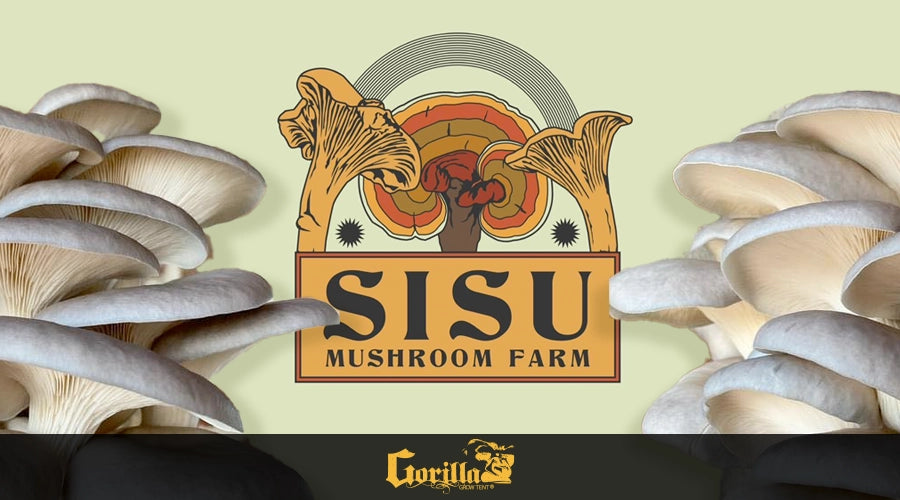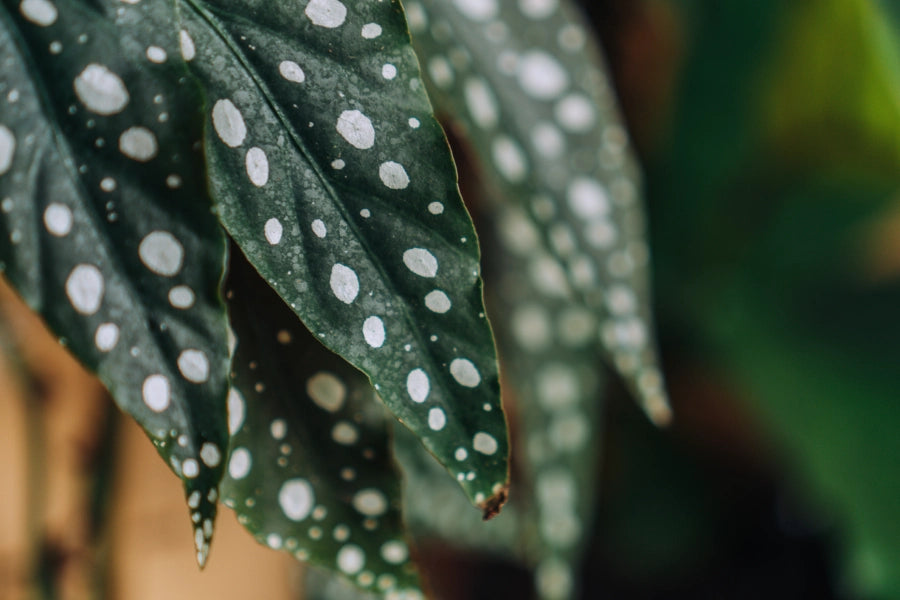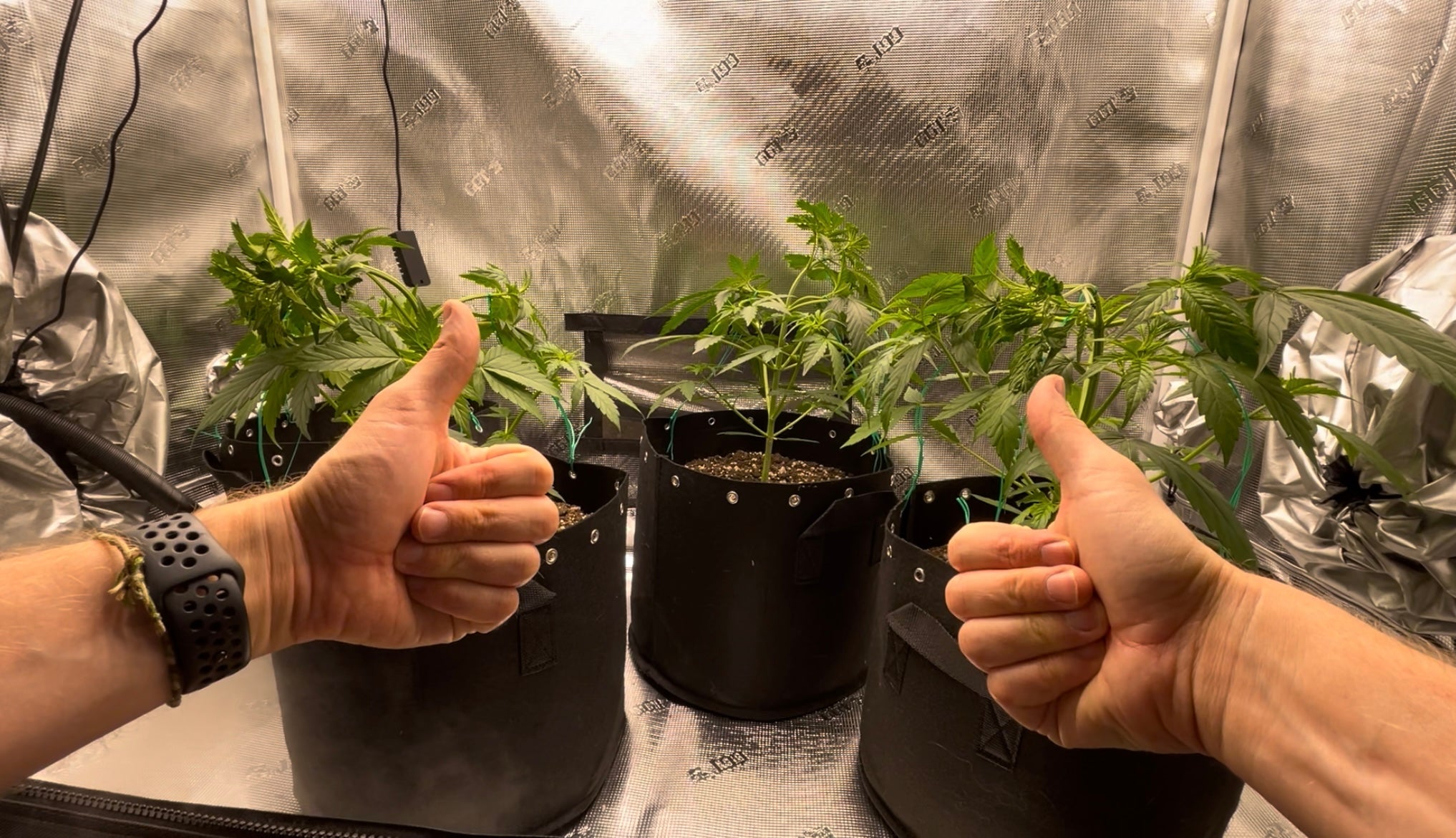
Cultivating Success: Sisu Mushrooms' Journey with Gorilla Grow Tents
Sisu Mushrooms' Journey with Gorilla Grow Tents
Mushroom growing is a fascinating and rapidly expanding field, with hobbyists and professionals alike exploring innovative methods to cultivate these unique fungi. In this exclusive interview, we chatted with the owners of Sisu Mushrooms, a forward-thinking mushroom cultivator who has achieved remarkable success using Gorilla Grow Tents in their operations. We'll delve into the benefits of using Gorilla Grow Tents for mushroom growing, explore the unique setup Sisu Mushrooms employs, and uncover valuable insights into this burgeoning industry.
-
Can you tell us about your experience growing mushrooms with the Gorilla Grow Tent? What benefits have you seen from using this tent in your mushroom production?
- I’m a huge fan of the Gorilla Grow Tent’s waterproof bottom. As a mushroom cultivator, I deal with high humidity environments regularly, and pooling water is a common issue. I usually wouldn’t trust the waterproof bottom overnight but this one has actually eliminated that issue. -
What makes the Gorilla Grow Tent the ideal tent for mushroom growing compared to other competitors in the market?
- I specifically like the height that Gorilla Grow Tents offer. It allows me to experiment more with how my fresh air, CO2, and humidity moves throughout the tent. One thing that I get asked about all of the time is the zippers. Having experienced tents from four different manufacturers, I can say that GGT’s zippers have lasted me the longest. After a year of heavy commercial use, the main zipper is only now showing slight signs of fraying. That being said, this is the first tent that has lasted me this long and this is also the first tent that I have used commercially. -
What are some common challenges you face when growing mushrooms, and how does the Gorilla Grow Tent help you overcome them?
- The tent helps keep contaminants out of the grow space but it also keeps the spores from moving back in to the common space outside of the tent. Also, when dealing with positively and negatively pressured spaces, it is extremely important that whatever tent you choose is thick and strong enough to not rip at the seams. This one has served me well. -
What are some of the most important factors to consider when growing mushrooms in a tent environment?
- How easy it is to clean. If there is too much going on, you are going to be cleaning things that you don’t even use and it is going to take an unnecessary amount of time. Set up where it is easy to get heavy racks in and out of the tent without having to unload them. Also, be meticulous when planning your rack layout before buying your racks. Be sure to select racks that optimally leverage the available space. -
What are the most important factors to consider to improve the quality and yield of mushroom production?
- Starting with quality genetics and nutrients. After that, it’s all about experimenting and being willing to change parameters. -
Can you share some of your favorite mushroom recipes?
- My absolute favorite mushroom recipe is for our Cajun Mushroom Jerky! My next favorite uses Lion’s Mane instead of crab in New Orleans Chef Jason Devillier’s Blue Crab Beignet’s. Definitely worth a try! -
What are some of the biggest trends in mushroom growing that you see happening in the industry right now?
- Mushroom cultivation, something that was recently only thought of by a relatively small group, has finally broken through to mainstream awareness. This is mainly thanks to social media. Just a few years ago there were only a few different online sources for mushroom cultivation. The world of mushrooms and fungi is now receiving the recognition it has long deserved. The potential health benefits of mushrooms, from treating diseases like cancer and Alzheimer's to aiding overall wellness, are fueling a surge in interest, particularly in mushroom supplements. People are also learning that their home-grown produce doesn’t need to be limited to traditional garden vegetables and that they can cultivate their own food and medicinal aids right at home. Looking ahead, I'm intrigued to observe the industry's growth over the next 5 to 10 years and the impact it will inevitably have on our daily lives. -
Lastly, what advice do you have for anyone looking to get started in the mushroom growing industry? What are some tips or advice you would give them?
- For anyone wanting to get into the mushroom industry, always be willing to learn. Fungi have more to offer us than we could ever understand. Until 1969, fungi were still classified under Kingdom Plantae. Now recognized as a distinct kingdom, the study of fungi has opened up a world of untapped potential. Continuous research and innovation are broadening our understanding and revealing new applications, from food and medicine to environmental conservation and mycoremediation. A lot of people will try to tell you how you must do things. Again, mushroom farming is relatively new to small scale farmers. Experiment. Share your findings. Help other farmers. Even if someone says something won’t work, try it yourself. It may just not work for their environment or with their genetics.
For more information, visit Sisu Mushrooms' Website, Instagram & Facebook!


